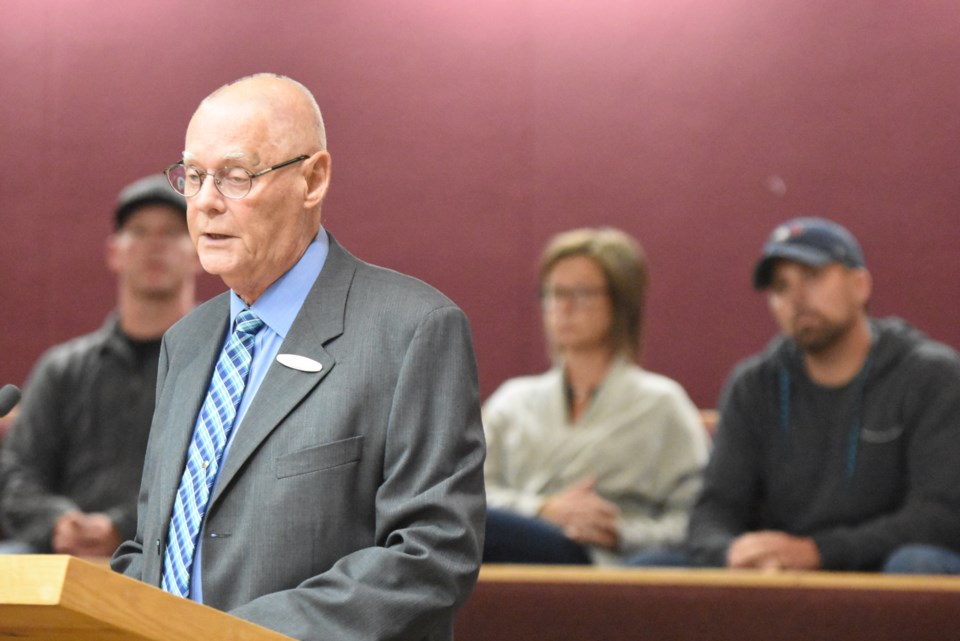Seven property owners will likely not be compensated for a dispute with the municipality over its cast iron water main replacement project, bringing an end to a three-year struggle for compensation.
The property owners’ complaints stemmed from being billed under phase 1 of the replacement program in 2016. Seven property owners out of 33 in the affected area disputed their invoiced amounts. At the time, city council referred the matter to the administrative review officer (ARO) for investigation and recommendation. This is a different process since normally a citizen would complain to the ARO directly.
David Foley, the administrative review officer, provided his final report and recommendations on May 1, 2019 to city council; council later discussed the report behind closed doors during a subsequent executive committee meeting.
Foley appeared during council’s Aug. 12 executive committee meeting to discuss his report and answer questions.
City council voted 5-2 on a recommendation to receive and file the report. Councillors Brian Swanson and Scott McMann were opposed.
The recommendation must be approved during the Aug. 26 regular council meeting to become official.
Report recommendation
As part of his recommendation, Foley suggested the seven affected property owners be offered a goodwill discount of 10 per cent on the original bill. This would be a full and final settlement of the dispute.
Without the discount, the affected property owners would pay $154,850.75. With the discount, they would pay $139,365.68.
However, since council voted to receive and file the overall report, Foley’s recommendation was essentially voided.
Findings and conclusions
Foley reviewed “a wealth of documents” that city administration provided him as background to the complaint, he said. Besides information about phase 1 of the cast iron replacement program, he also looked at advertising and information related to the local improvement program (LIP) model, plus samples of all documents provided to the 33 affected property owners.
After the 2016 municipal election, the new city council changed the LIP model, which meant Foley had to review additional materials and documents.
There are currently more questions than answers about some of what transpired, what was said to whom, and what verbal transactions may have taken place outside the written record, he said.
“However, I am convinced that the information provided by the city to the affected property owners, read in its entirety, makes clear the obligations of the property owners as it relates to the costs being billed,” he continued.
This observation is supported by the fact 26 of the affected property owners — or 80 per cent — accepted their invoices and agreed to pay them. Foley pointed out the property owners would have to pay much more if they were required to pay under the terms and conditions in place today. He determined property owners would pay 17-per-cent more than they were originally billed.
The municipality made efforts to clarify and explain any confusion the seven property owners might have experienced, Foley said. It has also held, in abeyance, the payment of the invoices while the matter was under review. Since this matter is three years old, Foley thought both sides might have to make concessions to bring the matter to a satisfactory conclusion.
“I have found no evidence to suggest that there should be any assignment of blame to anyone. All staff I have had cause to contact have been co-operative, professional and respectful … ,” he added. “I do feel confident that this recommendation I have made is fair, equitable and just.”
The next executive committee meeting is Monday, Aug. 26.




